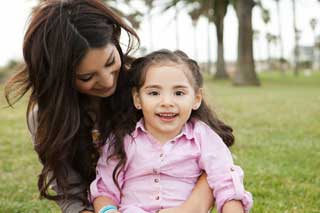The Word from Lansing: Catholics Emboldened to Fight Abuse, Encourage Healing

Posted November 20, 2020
For in one Spirit we were all baptized into one body…now the body is not a single part, but many.
St. Paul reminds Christians that we are all unique components of the Body of Christ. Just as people rely on the different parts of their body to experience the world God has made, the Catholic Church relies on each of its followers to live out the teachings of Jesus. We are called to care for those around us, particularly those who are suffering.
Caring for others includes protecting one another from harm. From July 2018 to June 2019, over 2.6 million volunteers and employees of the Church—as well as 3.6 million children—received mandatory training to recognize abuse and learn how to report potential incidences. The training of employees and volunteers, implemented by the U.S. bishops in 2002, has created a culture of safety and prevention in the Catholic community. Preventative and pro-active measures to implement safe environments will continue so that every child and vulnerable person can flourish and be the person God intended.
We recall with sadness that such reforms only emerged following a time of great anguish. The sexual abuse crisis that was brought to light in 2002 demonstrated that accountability and transparency were necessary, even in cases where high-ranking church officials may have been involved. To this point, a report was recently made public from the Vatican regarding substantiated claims of abuse and misconduct by a former archbishop in the eastern part of the country, Theodore McCarrick. At the same time, files from Michigan’s seven dioceses are currently under review by the state Attorney General as part of an investigation that began in 2018. Recognizing that true healing cannot occur without transparency and reform, each of Michigan’s bishops welcomed the State’s investigation, pledging to cooperate fully with authorities. While many Catholics have become familiar with the abuse that occurred decades ago, ongoing news reports related to abuse or the investigation have brought to the surface fresh pain, anger, sadness, and confusion.
The U.S. Church has worked tirelessly over the past twenty years to confront the past and to ensure a safe future. Dioceses are committed to partnering with law enforcement and to continuing the necessary work of prevention and healing. Legislatively, Michigan Catholic Conference has advocated for measures that would expand the list of mandatory reporters of abuse and neglect, increase available training to those individuals, and hold abusers accountable. Of particular importance is the national child abuse prevention framework implemented in 2002 by the U.S. Conference of Catholic Bishops. These provisions include:
- Background Checks
- Over 2.6 million background checks were conducted on clergy, employees, and volunteers from July 2018 to June 2019.
- Annual Audits
- Dioceses undergo an annual audit, which includes findings on child safety and recommendations for improvement.
- Victim Assistance
- Each diocese has a Victim Assistance Coordinator who can connect victims with counseling, spiritual assistance, and other support; facilitate a meeting with the bishop, if desired; and sit with victims in their pain.
- Review Boards
- Every diocese has a review board that collaborates with the local bishop in assessing allegations of sexual abuse of minors. The review board, made up of a majority of lay persons, has the opportunity to provide oversight and to regularly review diocesan policies for dealing with abuse.
Most recently, the Vatican and the U.S. bishops have implemented a new third-party reporting system. In the United States, individuals may report acts of sexual misconduct by a bishop or interference into an investigation by a bishop.
Each of these provisions matter. They have empowered children and adults to speak out when something feels wrong. At the same time, complacency is not an option. Every person who enters a parish, school, or facility operated by the Church must feel they are as safe there as they are in their own home. In fact, no public or private institution in the country has done more to protect children and create safe environments. The measures instituted by the Church should be reviewed and considered by other institutions responsible for children. Because of the prevalence of abuse across public and private sectors of society, Catholics should not shy away from sharing best practices and proven policies.
As survivors and their families work toward healing, it is important to remember that the Body of Christ grows stronger, as the most recent audit report states, “when victims/survivors come forward to share their stories and seek healing…when we all work together to create a culture of safety…when we all respect the inherent human dignity of all people…and when we follow Jesus.” As Catholics, we have the opportunity to respect the dignity of all and care for one another. All of us are needed in this critical work.
